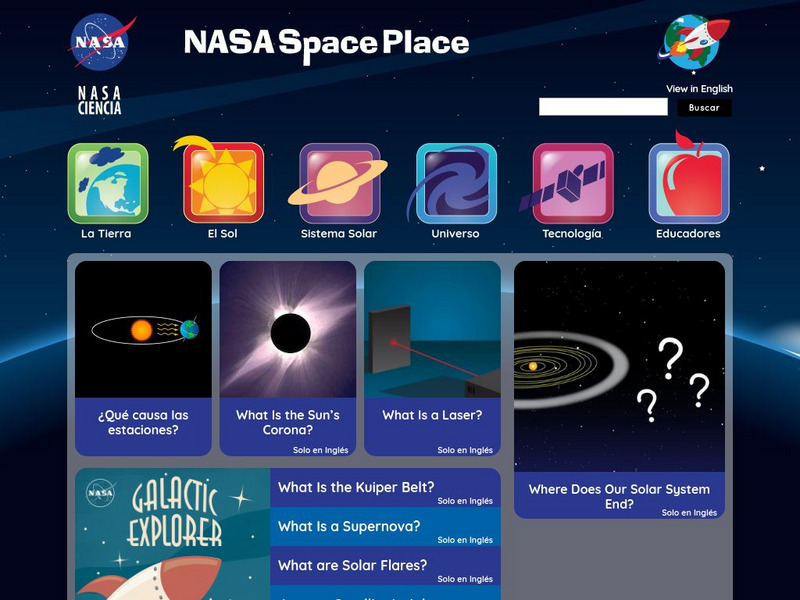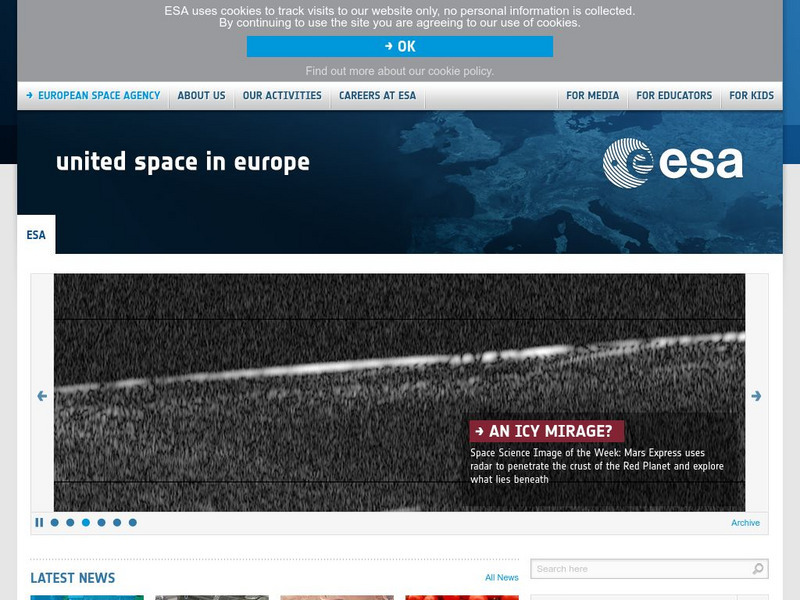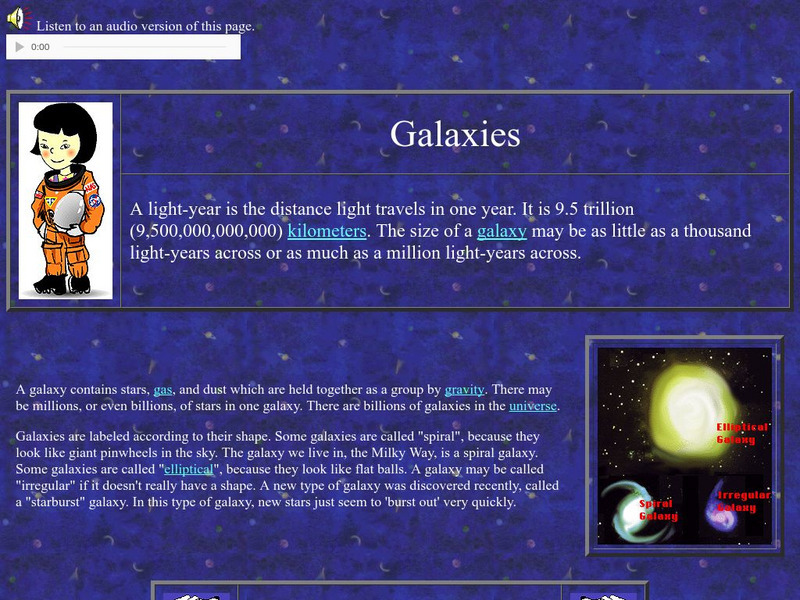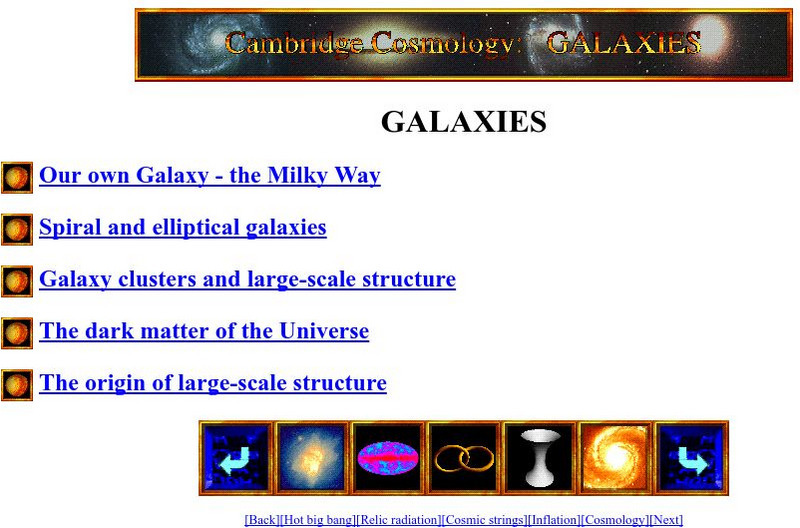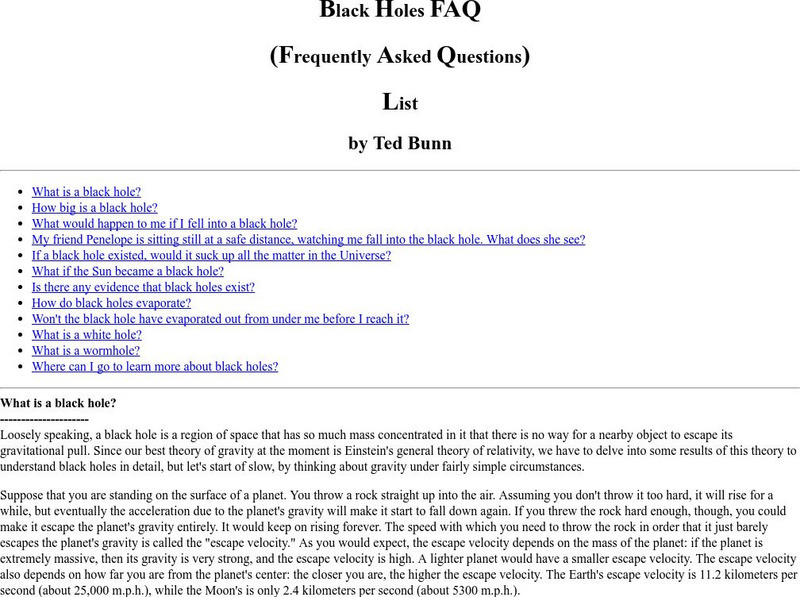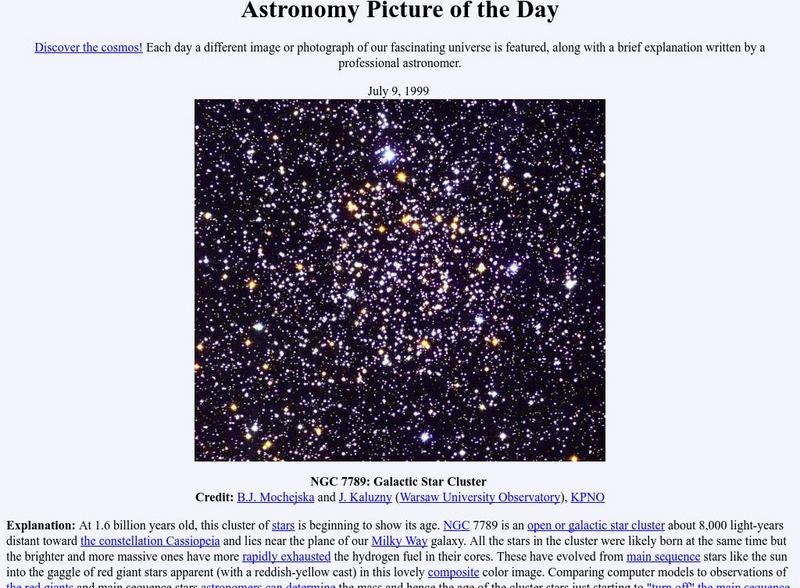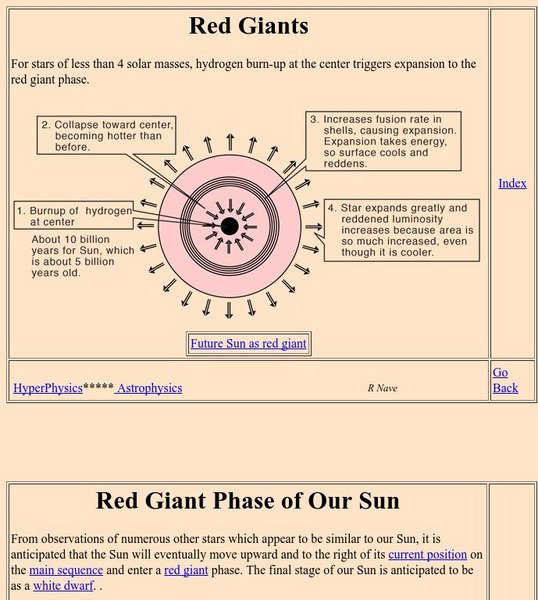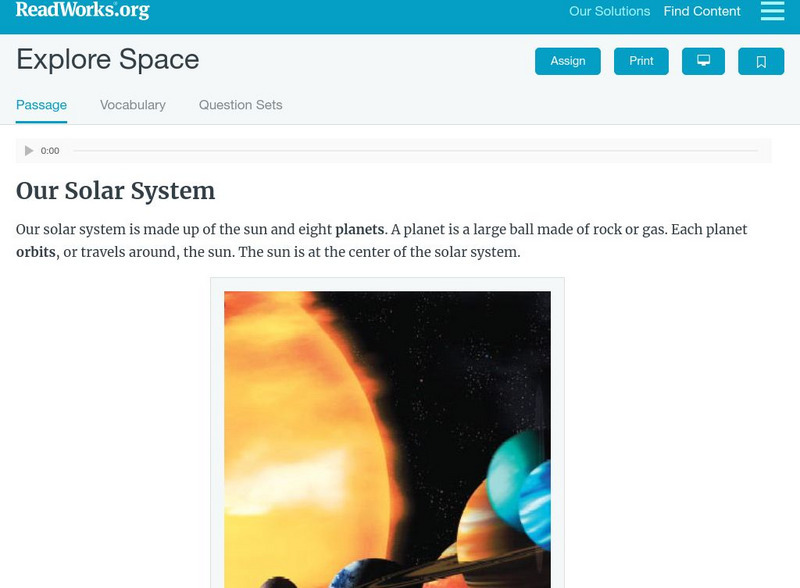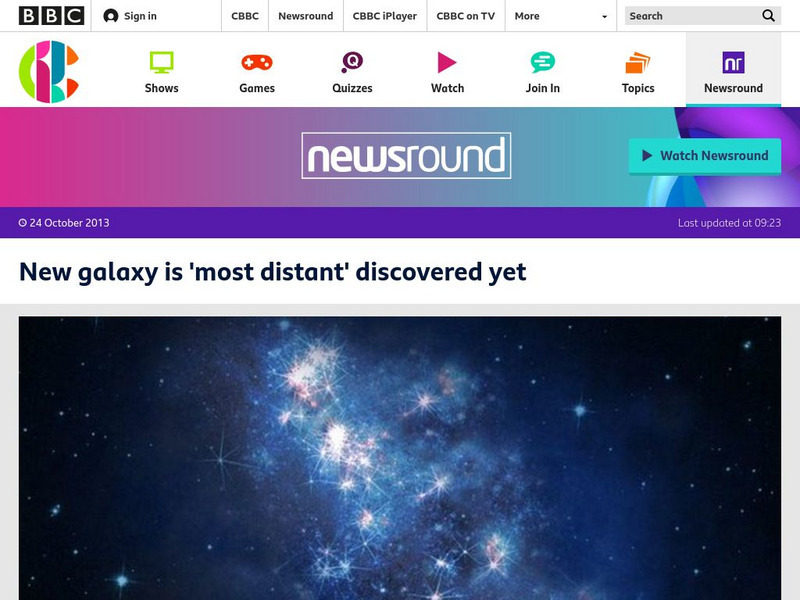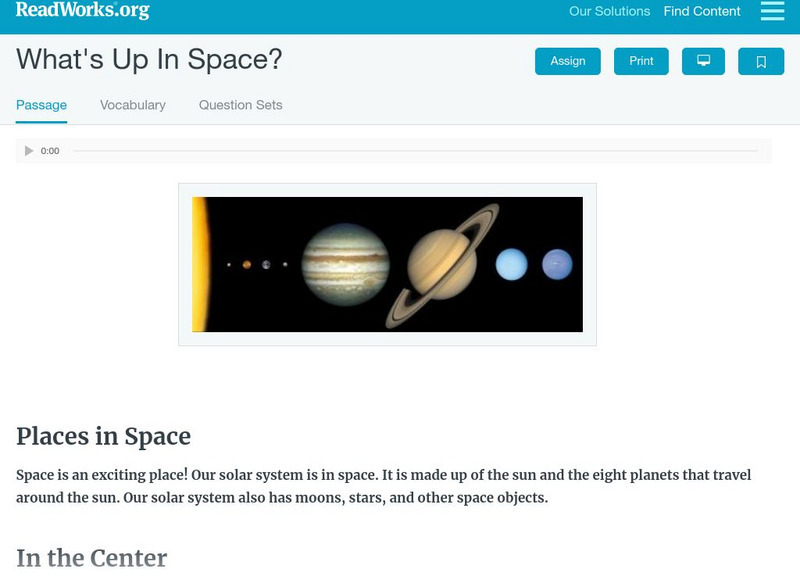NASA
Nasa: Space Place
In this site you can explore, do and play games related to space, solar system, our planet and people and technology.
PBS
Pbs: Nova Online: Birth of a Supernova
PBS site explores the birth of a Supernova and explores its common types.
European Space Agency
Estec External
Home of the European Space Research and Technnology Center, part of the European Space Agency. Includes information on educational and career opportunities, events and conferences, space expos, and more.
NASA
Nasa Star Child: Galaxies (Level 1)
This site provides an introduction to galaxies for the younger student, that is divided into 2 levels of understanding. Find out what type of galaxy looks like a giant pinwheel. Audio content included. Good glossary, and a printable...
Other
University of Cambridge Cosmology: Galaxies
This site from the University of Cambridge allows you to view information on spiral, elliptical, and Milky Way galaxies, as well as galaxy clusters. Provides basic facts about each one.
Space Telescope Science Institute
Amazing Space: No Escape: The Truth About Black Holes
This site is for teachers or anyone interested in detailed information on black holes. Lesson plans are included as well as a grab bag of web images. Students have a chance to write and submit a paper on black holes and to explore the...
University of California
University of California Berkeley: Black Holes Faq
A detailed list of questions and answers concerning black holes that defines black holes and describes their basic physics and characteristics.
NASA
Nasa: Astronomy Picture of the Day: Giant Stars
Image of a group of red giant stars are seen in an image from the edge of the plane of the Milky Way. The evolution of these stars is explained. Many embedded links contained in the text to related topics.
NASA
Nasa: Imagine the Universe: White Dwarfs
Brief description of white dwarfs with respect to their position in the life cycle of stars, the density of white dwarfs, the emissions of white dwarfs, and the temperatures associated with them.
NASA
Nasa: Heasarc: What Are Pulsars?
A detailed definition of a pulsar with an explanation of the relationship of pulsars to X-ray astronomy and links to related resources.
Georgia State University
Georgia State University: Hyper Physics: Red Giants
Describes the red giant star's development stages and the scenario of our sun as a red giant. Diagrams are used to present the information.
NASA
Nasa: Wmap: Fate of the Universe
A general look at the expansion of the universe and the Big Bang theory.
Exploratorium
Exploratorium: Build a Solar System
Make a scale model of the Solar System and learn the REAL definition of "space." You tell it how large to make the sun (in inches or millimeters) and the page will do all of the calculations for your scale model solar system and provide...
NASA
Nasa: Electromagnetic Spectrum: Radio Waves
Radio waves have the longest wavelengths in the electromagnetic spectrum. This NASA article discusses AM, FM, TV, cell phone, as well as radio astronomy, which all use this technology.
Read Works
Read Works: Explore Space
[Free Registration/Login Required] This informational text passage shares information about the planets in the solar system. This passage is a stand-alone curricular piece that reinforces essential reading skills and strategies and...
Oswego City School District
Regents Exam Prep Center: Sample Space
Learn and practice the concept of sample spaces. Features include a teacher resource page.
Other
Art in Canada: Art Talk: Composition Glossary
A definition of composition with other terms and how they relate to composition. This site shows an example and also explains the terms provided.
BBC
Bbc Newsround: New Galaxy Is 'Most Distant' Discovered Yet
Article reports on the discovery by the Hubble telescope of the most distant galaxy known at this point.
BBC
Bbc Newsround: One in Five Suns Has Habitable World
Using the Kepler telescope, NASA scientists have estimated that one in five of suns in space host an Earth-like planet in what is called the habitable zone.
Other
Swedish Space Corporation
This is the official homepage of the Swedish Space Corporation, a government owned corporation devoted to space and space technology. Interesting space and satellite images and information.
NASA
Nasa: Imagine the Universe: Gamma Rays From Supernovae and Supernova Remnants
Astronomers use gamma decay to study the lives of the stars.
Physics Classroom
The Physics Classroom: Momentum and Collisions: The Astronaut Catch
Students imagine that they are hovering next to the space shuttle in earth-orbit, and bump into another astronaut of equal mass. If the two astronauts holds onto each other, then how fast do they move after the collision?
Read Works
Read Works: What's Up in Space?
[Free Registration/Login Required] This nonfiction passage discusses what is up in outer space. This passage reinforces essential reading comprehension skills. Opportunities for vocabulary acquisition are also included. Several questions...
Math Planet
Math Planet: An Introduction to Geometry
Provides an introduction to geometry with definitions of points, lines, planes and angles through the use of examples and a brief video lesson. [1:28]


